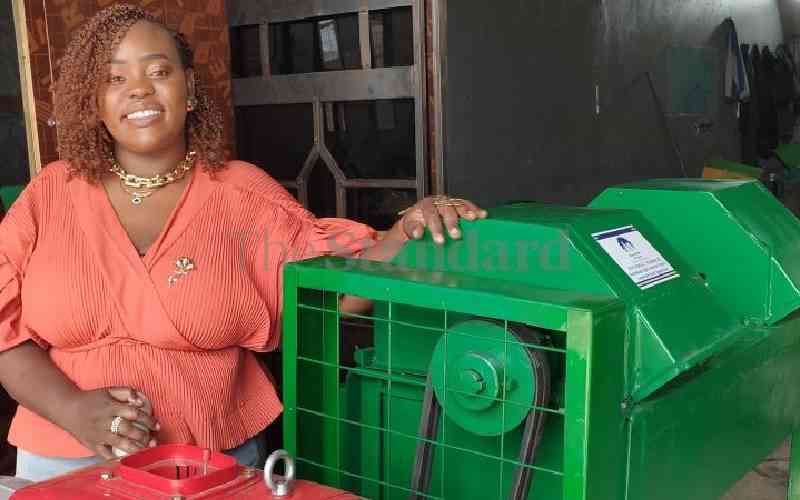×
The Standard e-Paper
Fearless, Trusted News

In September last year, Maryanne Kariuki started Drumventures Agri-Machinery Company in Kariobangi, Nairobi County.
The company fabricates various machines such as interlocking blocks, hibiscus and charcoal briquette makers, peanut decorticators, chaff cutters, silage choppers, hay shredders, hay balers, block masters, peanut roasters, roller mills, crushers, kilns, pasteurizers, chain links, and sugarcane juicers.







